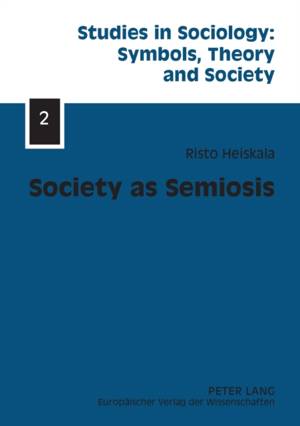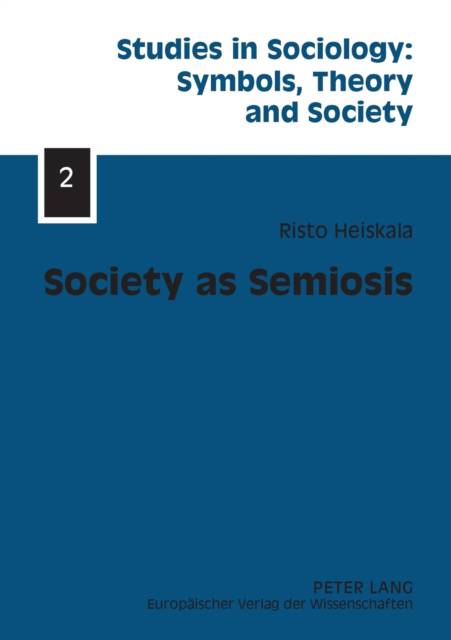
- Afhalen na 1 uur in een winkel met voorraad
- Gratis thuislevering in België vanaf € 30
- Ruim aanbod met 7 miljoen producten
- Afhalen na 1 uur in een winkel met voorraad
- Gratis thuislevering in België vanaf € 30
- Ruim aanbod met 7 miljoen producten
Zoeken
€ 109,95
+ 219 punten
Omschrijving
Action theory, phenomenological sociology, pragmatism and (post)structuralism are often seen as mutually exclusive currents of meaning analysis. This book shows that these traditions are actually complementary, and builds a neostructuralist synthesis on this finding. It also outlines the implications of this cultural theoretical synthesis for the field of social theory. What emerges is a variant of the theory of practice, habit and structuration of society. It shares the contemporary common belief that social theory should be based on cultural theory. Its distinctive mark is that this is done in systematic semiotic terms within a conception which provides mediation between the two most influential schools of semiotics, namely Charles Peirce's American pragmatism and Ferdinand de Saussure's French structuralism.
Specificaties
Betrokkenen
- Auteur(s):
- Uitgeverij:
Inhoud
- Aantal bladzijden:
- 390
- Taal:
- Engels
- Reeks:
- Reeksnummer:
- nr. 2
Eigenschappen
- Productcode (EAN):
- 9783631398289
- Verschijningsdatum:
- 7/03/2003
- Uitvoering:
- Paperback
- Formaat:
- Trade paperback (VS)
- Afmetingen:
- 148 mm x 210 mm
- Gewicht:
- 467 g

Alleen bij Standaard Boekhandel
+ 219 punten op je klantenkaart van Standaard Boekhandel
Beoordelingen
We publiceren alleen reviews die voldoen aan de voorwaarden voor reviews. Bekijk onze voorwaarden voor reviews.











